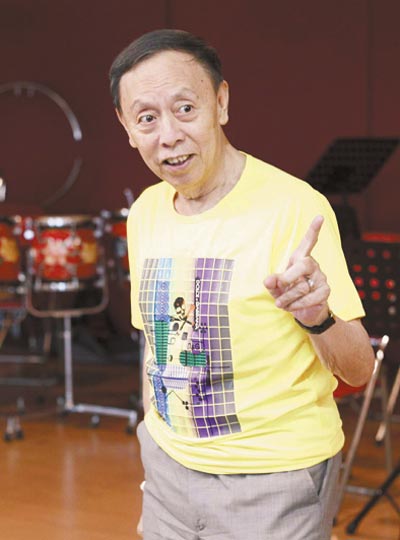
 |
|
Huang Junying is still active on stage, performing xiangsheng in Cantonese. Zou Zhongpin / China Daily |
Cross-talk star and innovator Huang Junying is still going strong at 76. He tells Xu Jingxi in Guangzhou the secrets of his success.
Related: Really small, perfectly formed
The auditorium was filled with fans of Huang Junying, from kindergarten kids to pensioners, on the 60th anniversary of the start of his career.
Incredibly energetic, the 76-year-old man took the lead role in seven out of 10 performances throughout the two-hour anniversary party.
He tickled the audience with his portrayal of a man with poor acting skills hired to play a child, wearing a red bellyband and cutting a caper.
He amazed the audience with his sonorous voice when singing a Cantonese Opera (Yueju Opera) aria that reverberated through the hall.
Ripples of applause and laughter went through the audience when Huang staged the short sketch and Cantonese Opera singing. But the versatile performer received the most extravagant cheers when he appeared in a gown to perform xiangsheng or cross-talk comedy.
Originating in North China in the Qing Dynasty (1644-1911), xiangsheng is essentially a humorous dialogue between two people, typically performed in northern dialects or Mandarin with northern accents.
Huang broke the language barrier and introduced the art form to Guangdong by presenting it in Cantonese more than 100 years after its birth.
In 1958, Huang, a rising Cantonese Opera actor, was selected to join a group of folk artists from all over the country to visit soldiers in Guangdong's neighboring Fujian province.
The group was divided into three teams and one more xiangsheng pair was needed. Huang volunteered and was an immediate hit.
"I gained a sense of achievement seeing the smiling faces of the audience. I wanted to bring joy to people in Guangdong and was confident that xiangsheng would also be popular here if spoken in the local dialect," the Guangdong native recalls.
"You need to acquire four basic skills - speaking, imitating, teasing and singing - and after racking your brains, to come up with punch lines," says Huang.
"It's challenging but intriguing at the same time. I was excited to take on the challenge."

He started translating xiangsheng works from Mandarin into Cantonese but then went on to create original Cantonese xiangsheng works.
He was encouraged by Ma Ji (1934-2006), a xiangsheng master based in Beijing.
In 1972, Ma went to Hainan province to give performances and draw inspiration for his xiangsheng creations. Huang rushed there and stayed for about a month.
"Ma gave me the thumbs up for my adaptations of his work but he also told me that I needed to do more than just translate northern xiangsheng works. He says that only by writing about things around me and people in the south could I make xiangsheng survive there," Huang recalls.